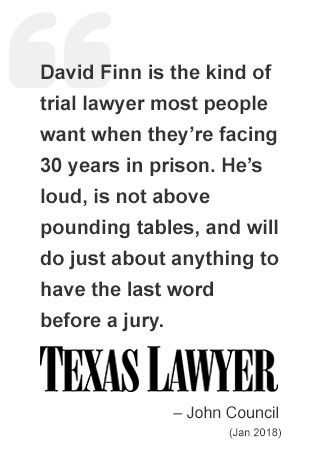


The Department of Justice Investigates Dallas Jail
This is a huge development. The United States Department of Justice Civil Rights Unit does not ask for an invitation to the party-they’re here. And they don’t come to town to award any silver stars. Look for a scathing report full of recommended changes. Elected officials know that they can either cooperate and finally implement changes or have them imposed by DOJ via court order. This will change everything.
Below is a recent story written by Jim O’Neill and published in The Dallas Morning News on December 1, 2005. Jim should be commended for continuing to write these hard hitting stories on the jail. Without them, the federal investigators might not be coming to town.
County jail faces Justice inquiry
Keliher eager to tout plans; health advocates lament slow pace of change
10:36 PM CST on Wednesday, November 30, 2005
By JAMES M. O’NEILL / The Dallas Morning News
The U.S. Department of Justice is launching an investigation into medical care at the Dallas County Jail to see whether there have been systemic violations of inmates’ constitutional rights.
County officials, who spent the summer discussing how to resolve egregious problems with jail health care, said in July that it would be inappropriate for the federal government to intervene because they were taking steps to make improvements.
But advocates for the mentally ill, many of whom end up in the jail and are often denied their medications for weeks at a time, said the county has moved too slowly.
The Department of Justice sent County Judge Margaret Keliher a letter informing her of the investigation. “I hope this makes the county move a little faster,” said Julie Noble, president of NAMI-Dallas, a mental health advocacy group. “They’re going so slow. I’m very sorry this had to happen in our county. It’s inexcusable. The Department of Justice is clearly tired of waiting on them for changes.”
County commissioners and the sheriff said they welcomed the investigation because it would give them a chance to show federal officials the plans they have made for improvements. “That should put the issue to rest,” County Judge Margaret Keliher said. “I expect a clean bill of health.”
Not everyone was so optimistic. Some who have argued for years that the jail poses serious risks to inmates’ health said the Department of Justice doesn’t intrude cavalierly, given its limited resources.
‘Tired of waiting’
“My sense is they were tired of waiting and want it cleaned up, now,” said David Finn, a lawyer representing the family of James Mims, a mentally ill inmate who nearly died in 2004 after water to his cell was turned off for two weeks.
In recent years, the U.S. Justice Department’s civil rights division has launched similar investigations into medical care issues and civil rights violations at county jails in Los Angeles, Santa Fe, N.M., Memphis, Tenn., Baltimore, Long Island, N.Y., and elsewhere. The investigations have led to agreements requiring major improvements at those jail facilities – improvements that are not in place at the Dallas jail.
“This federal investigation is a huge development,” Mr. Finn said. “The conditions in the jail are still God-awful, and no one wants to accept ownership. The commissioners have no credibility on this issue.” He said that while they have talked for months about improvements, few have occurred.
“The Department of Justice doesn’t involve itself in small matters. They’re the 900-pound gorilla, and when they show up, people start doing the right thing,” Mr. Finn said. “They don’t get involved to give clean bills of health.”
Dallas County Sheriff Lupe Valdez, who took office in January after a career as a federal agent, agreed that the federal government would not get involved if there wasn’t a problem. “I see this as a benefit to us,” she said. “They will make suggestions on how to improve, and what’s wrong with that?”
Mr. Finn filed a federal civil rights suit against the county on behalf of Mr. Mims a year ago. Lawyers representing Mr. Mims and several other inmates took a deposition in the case Wednesday from Dr. Steven Bowers, the jail’s medical director.
Mark Haney, one of the lawyers, said Dr. Bowers “confirmed that the jail conditions, if left the way they are, will continue to put people at serious risk of injury or death every day.”
Dr. Bowers said he could not comment. After the Mims incident, Ms. Keliher secured a grant to hire a national expert on correctional health to assess the jail’s medical care. The report, completed in February, said serious lapses in medical care at the jail were worsening inmates’ health, posed risks to jailers and the public, and created situations that were life-threatening to inmates.
Among the many problems cited was that jail guards with no medical training conduct medical screening as inmates check in, and they miss at least 35 percent of detainees with health problems. In addition, inmates with chronic physical or mental illness often go weeks or months without their medication. The report also noted a serious shortage of staff.
Mr. Haney said that when asked whether the county had implemented any of the changes outlined in the February report, Dr. Bowers said that, aside from the addition of five staffers to screen for tuberculosis, none of the changes had occurred.
The University of Texas Medical Branch at Galveston, which has overseen the jail’s health care for three years, has requested an increase in staffing.
For years, the county spent $14 million annually on jail care. But in the face of the Mims suit and several others, as well as the scathing February report, commissioners increased the budget by $9 million this year.
Facing several million dollars in losses, UTMB has chosen not to renew its contract, which expires in March. The commissioners have asked Parkland Memorial Hospital to fix jail health care.
‘Long-standing issues’
“UTMB inherited a jail system with long-standing issues, and we brought forward a lot of those to the commissioners and provided corroboration that the concerns of previous providers and staff were valid,” Dr. Owen Murray, UTMB’s chief physician executive, said when asked to comment on the federal investigation.
The jail system, the seventh largest in the nation, houses more than 7,000 inmates. There are close to 100,000 book-ins a year, and many of those jailed have chronic health issues or suffer from mental illness. The Supreme Court has ruled that the government has a constitutional responsibility to provide inmates with adequate medical care.
“I said this was probably going to happen,” Commissioner Maurine Dickey said of the federal investigation. “It’s a sad situation. After that report came out in February, we never even discussed it.”
Commissioner John Wiley Price agreed.
“It’s one thing to have a plan, and another to have some action,” he said. “I think the feds were looking for some real movement. I thought it was just a matter of time before they intervened.”
Commissioners Kenneth Mayfield and Mike Cantrell said they saw the federal investigation as a positive development, because the county can show federal officials the plans they have made for improvement.
They said they didn’t think the county was moving too slowly. “There were so many different issues that had to be addressed, and we didn’t want to rush into it and just throw money at it without thinking through a plan that would work,” Mr. Cantrell said. “This is not something you can do overnight,” Mr. Mayfield said. “The commitment is there in the county to make the changes.”
Parkland board members, worried the project will drain vital resources from the hospital, want to hire an outside company to fill middle management positions at the jail. Parkland’s request for bids from companies to handle that role could be released by Friday.
Sharon Phillips, the Parkland vice president heading up the jail project, said the federal investigation could make it more difficult to find companies interested in the job. On the other hand, she said, “maybe the investigation can help speed changes along.”
The Department of Justice’s Civil Rights division letter to Ms. Keliher announcing the investigation said the probe would focus on “medical care, mental health care, and sanitation” at the jail.
Remedies, assistance
In his letter, Wan J. Kim, the assistant attorney general in charge of the civil rights division, writes that if the department finds violations, “we will provide detailed written findings and identify the minimum measures we believe are necessary to remedy the violation.” He also offers to identify any federal financial, technical or other assistance the government might provide.
“The unfortunate thing is that the Department of Justice had to step in,” said Vivian Lawrence of the Mental Health Association of Dallas. “Over the years we’ve tried to work with the county to get them to make corrections. We’ve tried to offer our expertise. But … they have never fully followed through.”
“Now, the federal recommendations will probably be a lot stricter than we had asked for, and it will cost the county a lot more,” Ms. Lawrence said. “Is this intervention necessary? Evidently.”
E-mail joneill@dallasnews.com
Phone Numbers
Office: (214) 538-6629







